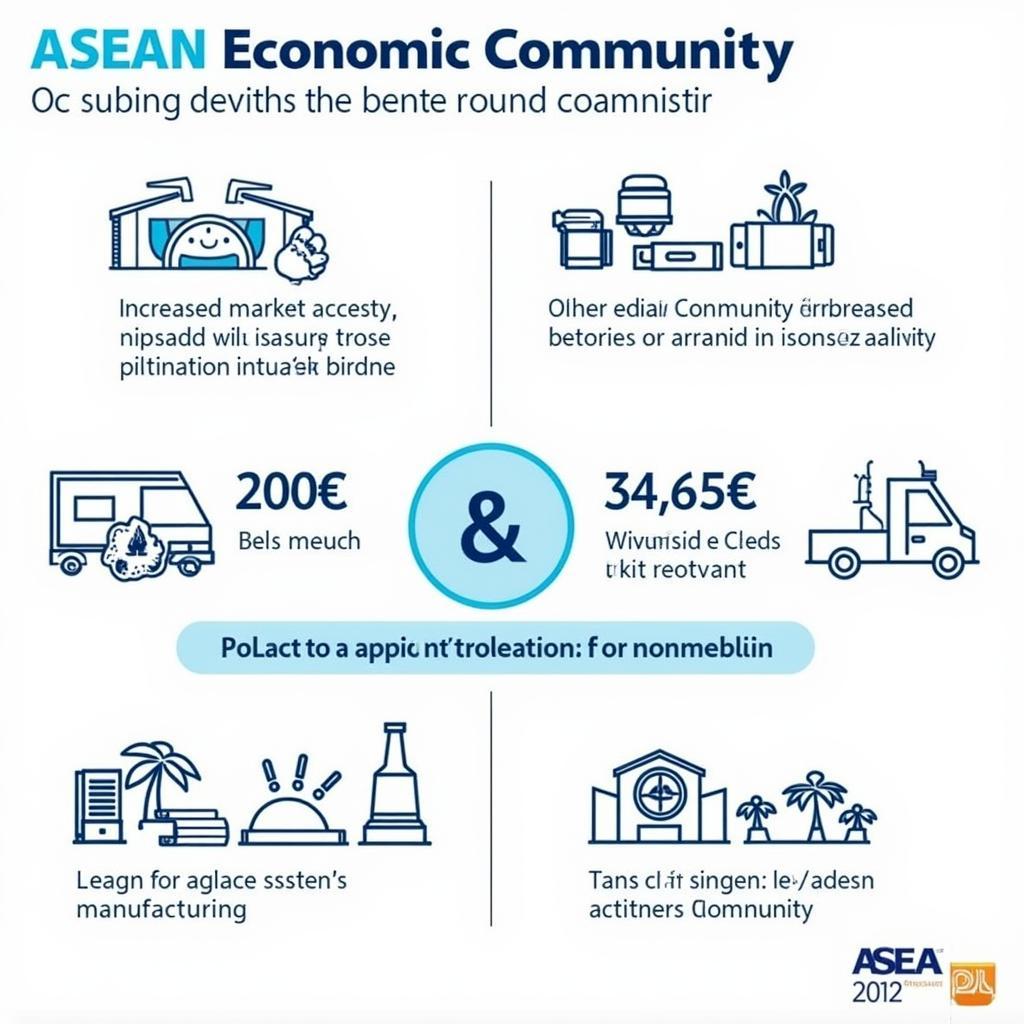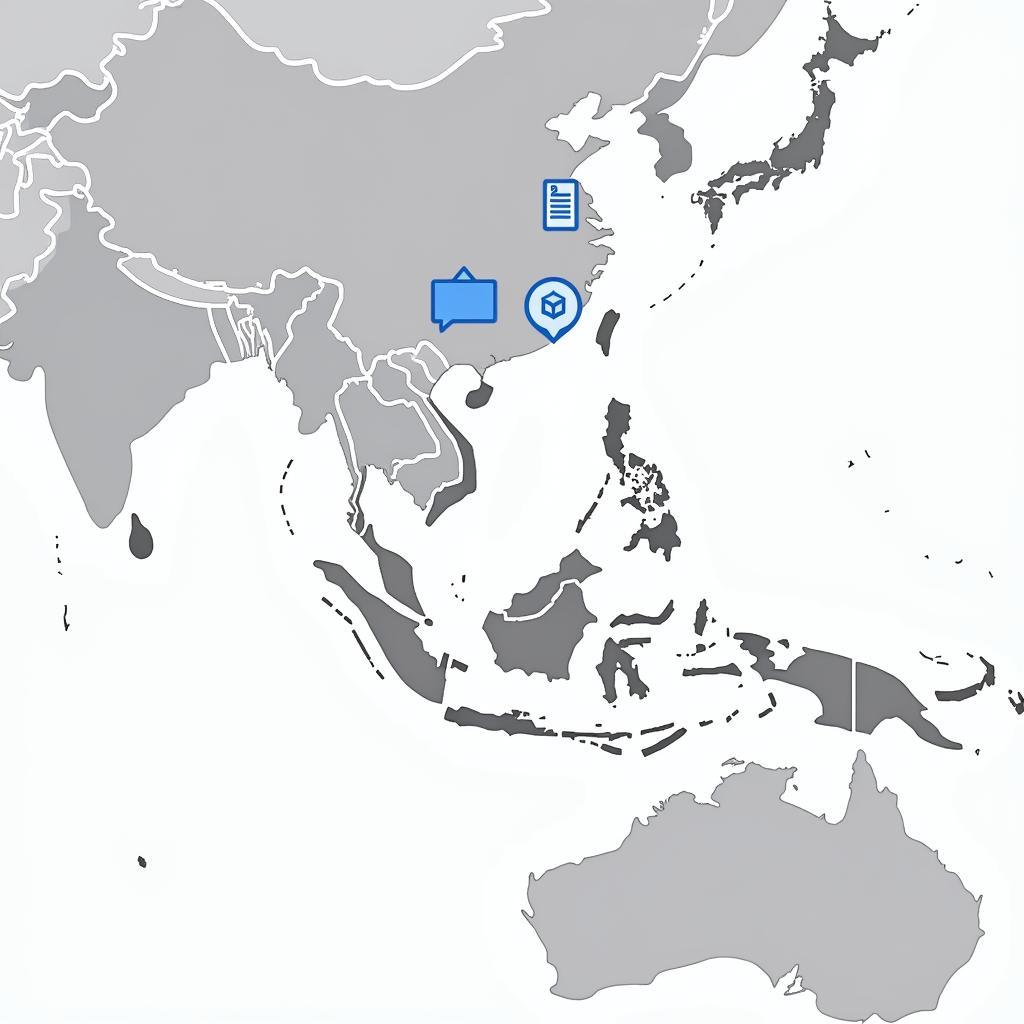ASEAN registration, in its broadest sense, refers to the various processes and procedures involved in establishing a presence, be it a business, NGO, or other entity, within the ASEAN economic community. This guide will delve into the complexities of ASEAN registration, exploring the different facets, challenges, and opportunities that this dynamic region presents.
Navigating the Landscape of ASEAN Registration
ASEAN registration can be a complex undertaking, varying significantly based on the specific nature of the entity seeking registration and the particular ASEAN member state in question. The diversity of regulations and procedures across the ten member states adds another layer of complexity, requiring careful consideration and strategic planning. This is where understanding the nuances of each country becomes crucial.
Understanding the Different Types of ASEAN Registration
The term “ASEAN registration” encompasses a wide range of processes, including:
- Business Registration: This involves registering a company or establishing a branch office within an ASEAN member state. Requirements vary considerably across countries, encompassing aspects like minimum capital requirements, local ownership regulations, and specific industry regulations.
- NGO Registration: Non-governmental organizations seeking to operate within ASEAN must navigate specific registration procedures that differ from business registration. These regulations often focus on the organization’s mission, funding sources, and intended activities within the region.
- Product Registration: For companies looking to sell products within the ASEAN market, product registration is essential. This often involves complying with specific labeling requirements, safety standards, and technical regulations that vary by product category and country.
Key Considerations for ASEAN Registration
Before embarking on the ASEAN registration process, several key factors warrant careful consideration:
- Target Market: Identifying the specific ASEAN member state(s) where you intend to operate is paramount. This will determine the specific regulations and procedures you need to follow.
- Business Structure: Choosing the right business structure (e.g., sole proprietorship, partnership, limited liability company) is crucial, as it impacts tax implications, liability, and operational flexibility.
- Legal and Regulatory Compliance: Navigating the legal and regulatory landscape of the chosen ASEAN member state is essential. This often requires seeking professional advice from local legal experts and consultants.
Leveraging Opportunities Within the ASEAN Economic Community
The ASEAN Economic Community (AEC) offers significant opportunities for businesses and organizations operating within the region. The AEC aims to create a single market and production base, facilitating the free flow of goods, services, investments, and skilled labor. Understanding how to leverage the AEC’s framework can streamline the ASEAN registration process and unlock new growth potential.
 Benefits of the ASEAN Economic Community
Benefits of the ASEAN Economic Community
Challenges and Solutions in ASEAN Registration
While the ASEAN region offers immense potential, navigating the registration process can present some challenges:
- Bureaucratic Procedures: Some ASEAN member states have complex bureaucratic processes, which can be time-consuming and require significant paperwork.
- Language Barriers: Language differences can pose a challenge, particularly when dealing with local authorities and navigating legal documents.
- Varying Regulations: The diversity of regulations across ASEAN member states can create complexities, requiring businesses to adapt their strategies and operations accordingly.
Strategies for Successful ASEAN Registration
To overcome these challenges and ensure a smooth registration process, consider the following strategies:
- Seek Professional Advice: Engaging local legal and business consultants can provide valuable insights and guidance on navigating the specific requirements of each ASEAN member state.
- Conduct Thorough Due Diligence: Researching the target market, understanding the regulatory landscape, and assessing the competitive environment are crucial steps for successful ASEAN registration.
- Build Local Partnerships: Collaborating with local partners can facilitate market entry, provide access to local expertise, and navigate cultural nuances.
 Navigating ASEAN Registration Challenges
Navigating ASEAN Registration Challenges
Conclusion: Unlocking the Potential of ASEAN Through Strategic Registration
ASEAN registration, while complex, is a crucial step for businesses and organizations seeking to tap into the vast potential of this dynamic region. By understanding the intricacies of the registration process, navigating the diverse regulatory landscape, and leveraging the opportunities offered by the AEC, entities can successfully establish a presence in ASEAN and unlock new avenues for growth and success. Careful planning, thorough research, and seeking expert advice are key to navigating this process effectively and maximizing the benefits of ASEAN registration.
FAQ:
- What are the basic requirements for business registration in ASEAN?
- How long does the ASEAN registration process typically take?
- What are the benefits of registering a business within the AEC?
- What are the common challenges faced during ASEAN registration?
- Where can I find reliable information on ASEAN registration procedures?
- What are the costs associated with ASEAN registration?
- How can I ensure compliance with local regulations during the registration process?
For further assistance with ASEAN registration, please contact us at Phone Number: 0369020373, Email: aseanmediadirectory@gmail.com or visit our office at Thon Ngoc Lien, Hiep Hoa, Bac Giang, Vietnam. We have a 24/7 customer support team ready to assist you.